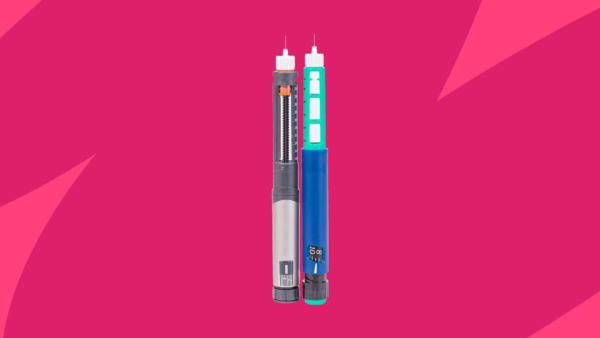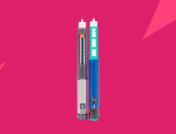Is carvedilol covered by insurance? | How much does carvedilol cost without insurance? | How to get carvedilol without insurance
Carvedilol is a generic prescription drug that the FDA has approved to treat high blood pressure and congestive heart failure, as well as to control heart dysfunction following a heart attack. Carvedilol belongs to a family of drugs called beta blockers. It decreases the heart rate and the force of each heartbeat. Carvedilol also relaxes blood vessels, so the space within them widens. These effects all combine to lower blood pressure and reduce the strain on the heart. People on carvedilol can take it as an immediate-release tablet or as an extended-release capsule containing carvedilol phosphate. Without insurance, carvedilol will cost over $50 a month – even more if the extended-release capsule or brand-name version is prescribed.
Related: Carvedilol dosage
What is the brand name for carvedilol?
Both immediate-release and extended-release carvedilol are available as lower-priced generic drugs. The brand-name versions are Coreg and Coreg CR. Both cost more than $400 for a 30-day supply.
Is carvedilol covered by insurance?
Most insurance plans, Medicare Part D plans, and Medicaid cover carvedilol prescriptions without restrictions, though some insurance plans may not cover extended-release carvedilol phosphate or brand-name Coreg. Examples include Aetna, Kaiser Permanente, Cigna, and United Healthcare. Most insurance plans also place immediate-release carvedilol in their lowest copay tier. Even though the copay cost may be low, other insurance plan policies such as deductibles, coinsurance, or coverage gaps may increase the out-of-pocket cost.
How much does carvedilol cost without insurance?
The average retail price for 60, 12.5 mg carvedilol tablets is $70. That will buy enough medicine for 30 days of twice-daily dosing. Generic Coreg CR costs about $320 for 30, 40-mg capsules, so the price is high for uninsured people. If immediate-release carvedilol is taken for an entire year, the total adds up to over $800. People can pay up to four times that amount for extended-release carvedilol.
Not all beta blockers cost this much, so the prescribing healthcare provider may be willing to suggest cheaper options. Atenolol, commonly used for heart failure, chest pain, and hypertension, costs about $18 for a 30-day supply. Acebutolol is about the same price. Propanolol, metoprolol, extended-release metoprolol, and bisoprolol are also common blood pressure and heart disease drugs and will cost between $40 and $50 per month. Some may not be suitable for conditions treated by carvedilol, so ask a healthcare professional about the pros and cons of switching.
People with hypertension should also ask the prescriber about other blood pressure drugs. Some types of blood pressure drugs including ACE inhibitors and angiotensin II receptor blockers (ARBs) are lower-priced than beta blockers. Again, they may not be suitable, so ask the prescriber why beta blockers are the best choice for your situation.
No matter what drug is prescribed, the lowest-cost option may be to use a SingleCare prescription discount card. The lowest SingleCare discount price for carvedilol is about $3 for a 30-day supply.
RELATED: Carvedilol alternatives: What can I take instead of carvedilol?
Compare Coreg (carvedilol) prices to related drugs |
|||
|---|---|---|---|
| Drug name | Price without insurance of brand-name drug | SingleCare price | Savings options |
| Carvedilol | $76 per 60, 12.5 mg tablets | $3 per 60, 12.5 mg tablets of generic carvedilol | See latest prices |
| Coreg
(carvedilol) |
$441 per 60, 25 mg tablets | $3 per 60, 25 mg tablets of brand-name Coreg | See latest prices |
| Coreg CR
(carvedilol phosphate ER) |
$551 per 30, 20 mg capsules | $121 per 30, 20 mg capsules of brand-name Coreg CR | See latest prices |
| Toprol XL
(metoprolol succinate ER) |
$58 per 30, 25 mg tablets | $3 per 30, 25 mg tablets of brand-name Toprol XL | See latest prices |
| Bisoprolol | $52 per 30, 5 mg tablets | $8 per 30, 5 mg tablets of generic bisoprolol | See latest prices |
| Entresto | $896 per 60, 24-26 mg tablets | $644 per per 60, 24-26 mg tablets of brand-name Entresto | See latest prices |
| Lisinopril | $30 per 30, 10 mg tablets | Under $1 per 30, 10 mg tablets of generic lisinopril | See latest prices |
Prescription drug prices often change. These are the most accurate medication prices at the time of publishing. The listed price without insurance references the price of brand-name drugs (unless otherwise specified). The listed SingleCare price references the price of generic drugs if available. Click the link under “Savings options” to see the latest drug prices.
How to get carvedilol without insurance
With refills, the annual retail price of carvedilol exceeds $800. At this price, uninsured people will welcome any savings or discounts they can find. Although patient assistance programs and manufacturer coupons are a good way to save money on some brand-name medications, they aren’t generally offered for generic medications. That means the first place to start is to use a free coupon from SingleCare. With SingleCare, people can purchase prescription medications at participating pharmacies for 80% or more off the average cash price.
1. Start with a SingleCare savings card
A 30-day supply of carvedilol normally costs about $78. The lowest SingleCare discount price for that same prescription is only $3. That’s 5¢ per pill. Discounts will vary, so visit the carvedilol coupons page for the most current savings as well as useful drug information. People can find discount prices for extended-release carvedilol on SingleCare’s carvedilol phosphate ER coupons page.
2. Shop for the lowest price
Shopping for lower prices pays off even for prescription medications. People without insurance could pay only $6 for a 30-day prescription. Check out SingleCare’s pharmacy finder for deals near you.
3. Consider switching to a lower-priced beta blocker
Carvedilol belongs to a drug class called beta blockers. Many similar beta blockers are cheaper than carvedilol, so ask the prescriber for medical advice about lower-cost treatment options.
4. Enroll in Medicaid
For people struggling to pay for needed medical care or drugs, Medicaid may be the best long-term option. The place to start is your state’s Medicaid website. It will have eligibility criteria, enrollment forms, and other useful information.











